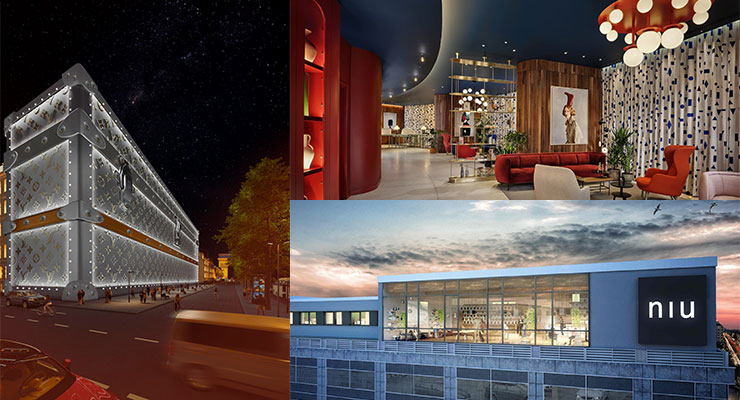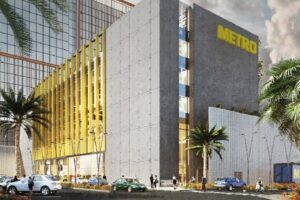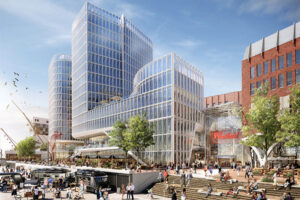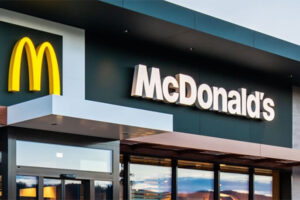Shopping has been recognized as an important leisure activity for many years. According to YouGov data, roughly one in five global leisure travelers say they travel mainly for shopping. “It brings in revenue and foreign exchange earnings, creates jobs, and gives travel destinations more variety. It can help spread economic development across regions, particularly through out-oftown retail malls, parks, and villages,” states the World Travel and Tourism Council. According to the Council, the US, mainland China, Germany, Japan, India, the UK, and France report the highest direct contribution of retail tourism to GDP.
To understand how retailers and other stakeholders in the travel and tourism sector see future challenges and opportunities, the World Travel and Tourism Council has identified five key areas that are currently shaping and will continue to shape the future of retail and tourism.
1. Retailtainment
A combination of the terms “retail” and “entertainment”, this marketing concept has emerged as a significant factor in incentivizing shopping at tourism destinations. Marketers and retailers can attract more footfall by transforming a shopping center, for example, or an individual store into a place of entertainment, leisure activities, and experiences, or by holding retail-related events.
2. Sustainable and Ethical Retail
As consumers become more conscious of their impact on the environment and society, retail tourism shifts towards more sustainable and ethical practices, whether it is in the design of stores or in products that are ethically produced or have plastic-free packaging.
3. Local Products, Local Culture, and Local Experiences
The local touch, with a focus on exclusive, local brands and crafts that cannot be found elsewhere, is an area of growth and importance at destinations. As tourists seek more uniquely local experiences when they travel, there are opportunities for local products to be sold by family-run businesses and for people to experience more of the respective culture through artisans and their work.
4. The Growth of Digitalization
Industry experts have emphasized the continued and growing relevance of digitalization since the onset of COVID-19 – in particular, the importance of, and demand for, e-commerce and digital payment platforms. Retailers will increasingly use technology such as AI and data analytics to offer personalized experiences and recommendations to shoppers, both online and in-store. However, shopping at a physical store will endure as it provides experiences and memories that cannot be replicated online.
5. Strong Demand for Luxury with Simultaneous Segmentation
In addition to these trends and developments, reports and industry experts clearly highlight the ongoing strength of the luxury retail market, with social media being a notable factor in the increasing demand for high-end and exclusive goods and experiences. Demand for luxury goods has grown both in the hotel sector and in the retail industry. The number of luxury hotels has increased, and retail sales are rising. At the same time, demand for discontinued products has also increased, and clear segmentation can be seen in the market.
Opportunities and challenges of closer cooperation
If tourism and hospitality are to play important roles in the future of retail (which they must), then the presence and location of hotels is critical. What, however, does such joint potential look like?
Summarized in a very simplified way: A 4-star hotel typically has a similar guest profile to a quality department store, while overnight guests at a hotel with 150 keys bring potential annual nonfood retail expenditure of 3 million euros plus potential F&B expenditure of 3 million euros. Hotels can also provide a wide range of guest facilities, including gyms, spas, treatment rooms, swimming pools, business suits, and quality dining. These multiply reasons to visit, increase footfall, extend dwell times, and amplify guest expenditure by as much as 25%.
If hotels are co-located in retail areas, then it is possible for all of this potential to be captured by local shops. However, real estate economics mean that hotels have traditionally been located in separate cultural quarters, on arterial routes, or hidden on the upper floors of secondary retail pitches, so the full benefit is rarely achieved. It is also important for there to be a strong partnership between retail, hospitality, and public sector management when it comes to placemaking investment and marketing. Understandably, these parties can sometimes have different priorities, which means that opportunities to benefit from each other can be compromised.
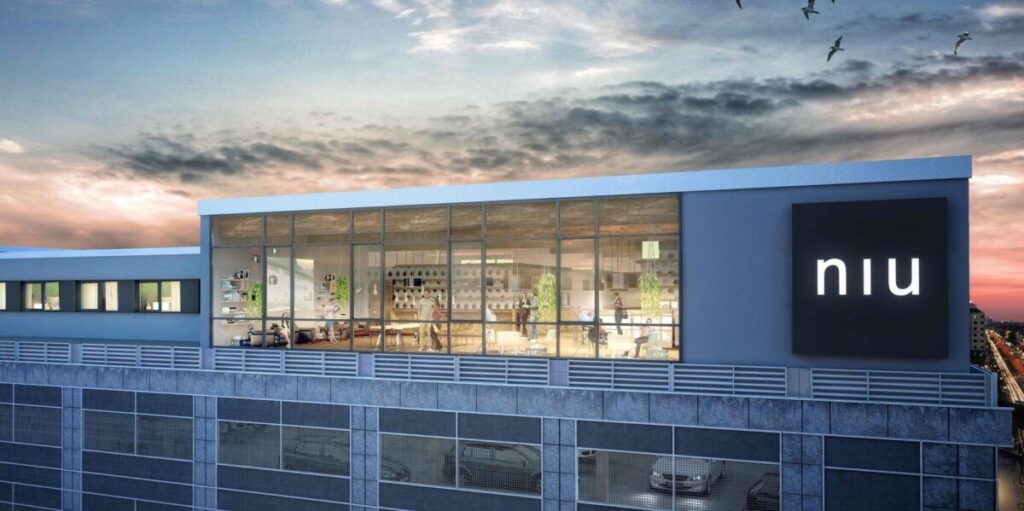
RING-CENTER BERLIN
“The niu Hide” hotel on the Ring-Center in Berlin: The niu Hide, the world’s first modular hotel on the roof of a shopping center, opened in 2019. The hotel from the Novum hospitality brand is located directly on the parking deck of the Ring-Center, which is managed by ECE. The hotel was realized by the hotel project developer MQ Real Estate – in sustainable modular timber construction. This concept provided one of the first examples of how shopping centers can be usefully supplemented with other suitable uses such as apartments, offices or hotels.
Consequences for the Retail Real Estate Industry
The similarities between the retail and the hotel industries are obvious. Although there are already examples of the combination of retail and the hotel industry, at least in the immediate vicinity, the question is increasingly being raised in the industry as to how the hotel and retail industries can further enrich each other. Retailers and operators are looking at making better use of spaces and service levels for consumers, which can include adding hotel space.
There are plenty of examples of co-locations in capital cities, in cathedral cities, in spa towns, at ski resorts and holiday resorts, as well as at traditional shopping centers. This is especially valid for new mixed-use developments. In HafenCity in Hamburg, Unibail has developed a huge shopping center with three hotels attached to it. As already mentioned, the luxury market is particularly active. LVMH has just announced plans for its first Louis Vuitton hotel on Paris’s renowned Champs-Elysées. Fendi offers private suites at the Fendi hotel in Rome, and Dior now operates its Dior Spa Cheval Blanc at the Cheval Blanc hotel in Paris. According to industry experts, however, retail giants such as H&M and Zara Home are also looking into entering the hotel sector in order to integrate their products directly into guest rooms, thereby improving the brand experience. However, for now, combining retail and hotels is still new to the market.
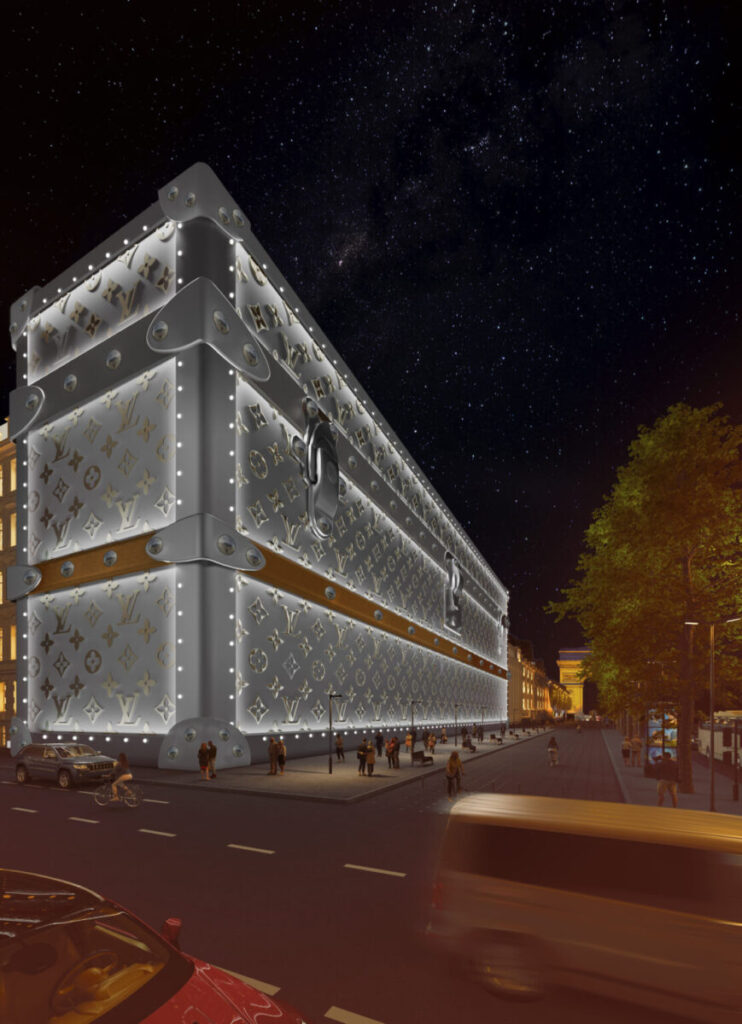
LOUIS-VUITTON-HOTEL PARIS
Following the trend, the French luxury brand Louis Vuitton is also entering the luxury hotel industry. The first Louis Vuitton hotel is set to open on the Champs-Élysées in Paris in 2026, covering 6,000 square meters.
This ACROSS cover story shows how many companies are thinking along these lines. Union Investment is a pioneer in the industry. The company is also taking an innovative organizational approach. “We are now viewing these asset classes together in our new department,” says Andreas Löcher, Head of Investment Management Operational at Union Investment. “There are many successful alliances out there, such as between perfume and fashion, so why not hotels?” Together with his colleague Roman Müller, Head of Investment Management Retail, Löcher explains in an indepth double interview which megatrends are affecting both areas, where there are further parallels, and which locations they are particularly focusing on, thus laying the foundation for an exciting discussion.
This ACROSS cover story aims to highlight the joint potential of the previously separate asset classes. Together with experts, we explored questions such as: What is the significance of shopping tourism for the travel and tourism industry? To what extent do retail and the hotel industry benefit from each other? At which locations is the symbiosis particularly evident? Which retail segments and price categories are particularly popular with shopping tourists and which hotel formats are particularly interesting for the combination of retail and the hotel industry?
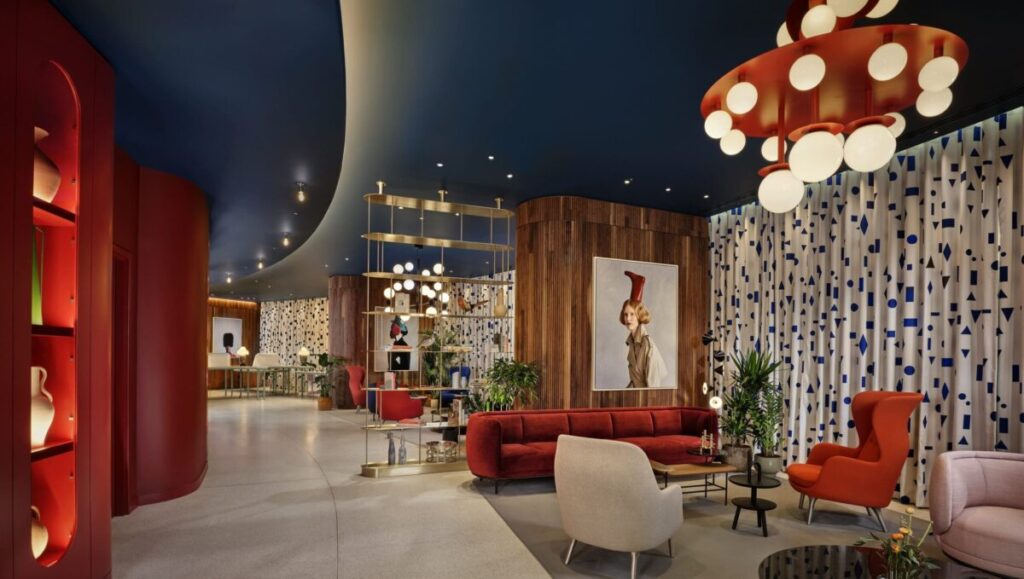
ART’OTEL AT BATTERSEA POWER STATION
London’s first art’otel opened at Battersea Power Station in December 2022 for first stays, and officially launched in February 2023. With 164 rooms designed by Spanish artist and interior designer Jaime Hayon, this art-inspired, luxury lifestyle hotel was one of London’s most anticipated hotel openings. The hotel is located within Battersea Roof Gardens, a new building forming a key part of Electric Boulevard, a new high street for London offering a great mix of shops, bars, restaurants, office space and a park. Electric Boulevard runs from the south of the Power Station between Frank Gehry’s Prospect Place and Foster + Partners’ Battersea Roof Gardens to the Battersea Power Station Underground Station.
The discussion should not and will not end with this cover story. Rather, this ACROSS edition serves as inspiration to continue thinking about and examining the topic. In particular, the symbiosis of retail and the hotel industry will once again be the topic of our next Retail Talk, which is scheduled to take place at 4:00 PM on 18 June 2024. The ACROSS “Retail and the Hotel Industry” Retail Talk will highlight the synergies and opportunities between retail and the hotel industry more intensively. A high-caliber panel will discuss retail and hotel industry synergies from the most diverse perspectives: investors, developers, operators, and consultants. Klaus Striebich (Moderator; RaRE Advise) and Reinhard Winiwarter (Managing Partner ACROSS Magazine) will be joined by: Elena Günther-Jakobs, Associate Director Development Northern & Central Europe at Ruby Hotels, Christian Buer, Professor of Business Administration and Hotel Real Estate & Financing and Head of Tourism & Hospitality; Founder of Nemis, Torsten Kuttig, Director ECE Work & Live GmbH, and Andreas Löcher, Head of Investment Management Operational at Union Investment Real Estate GmbH.
